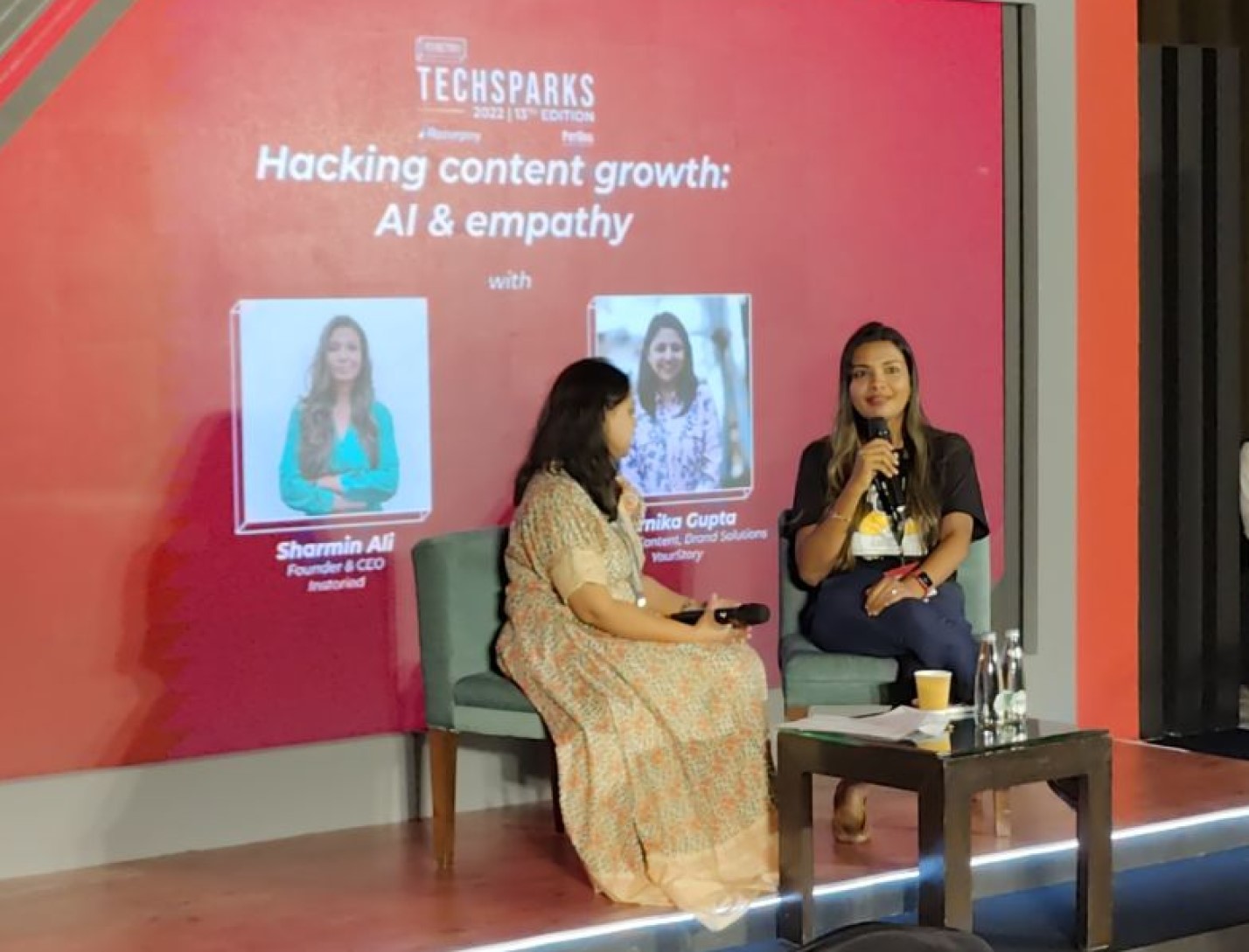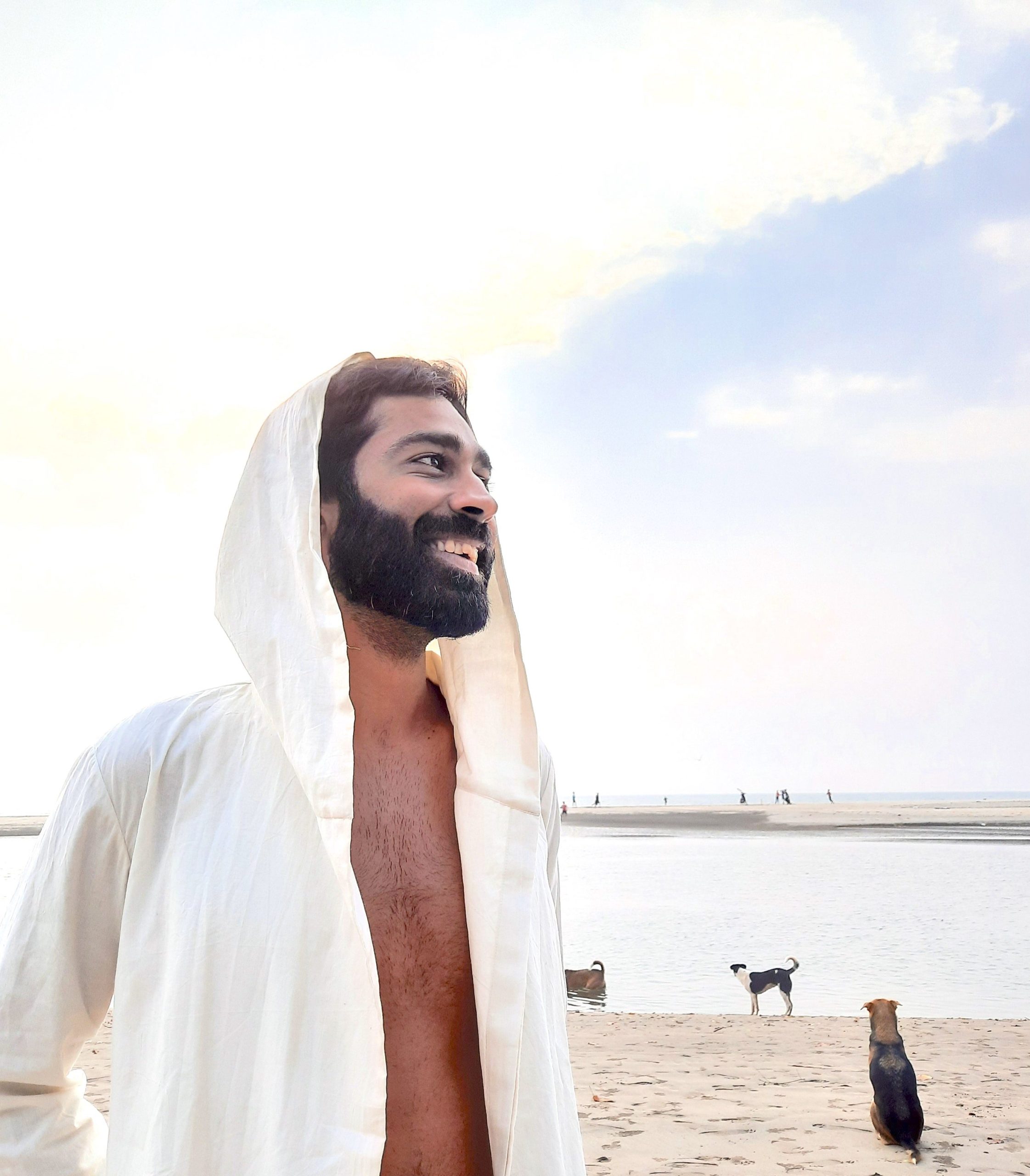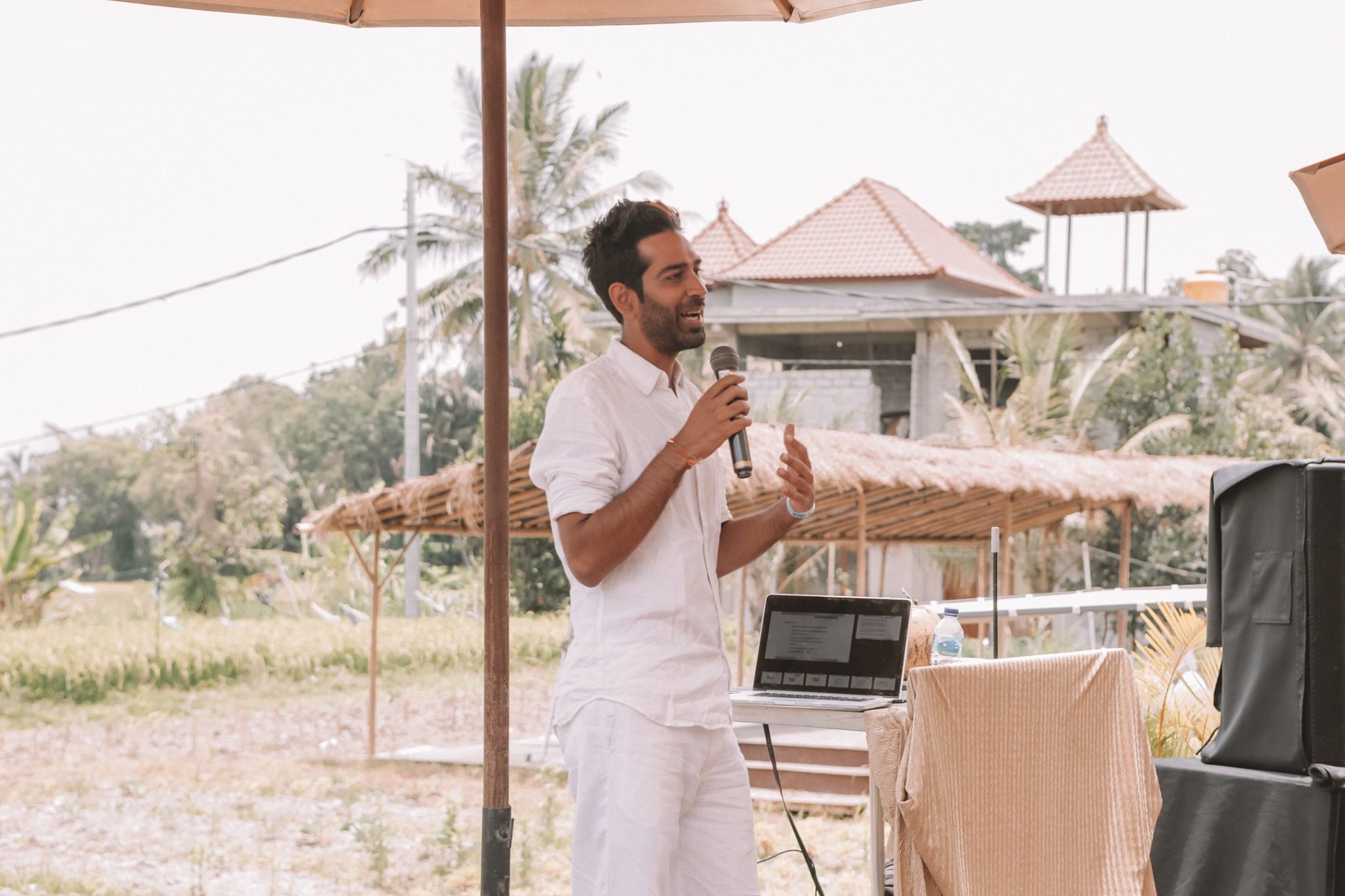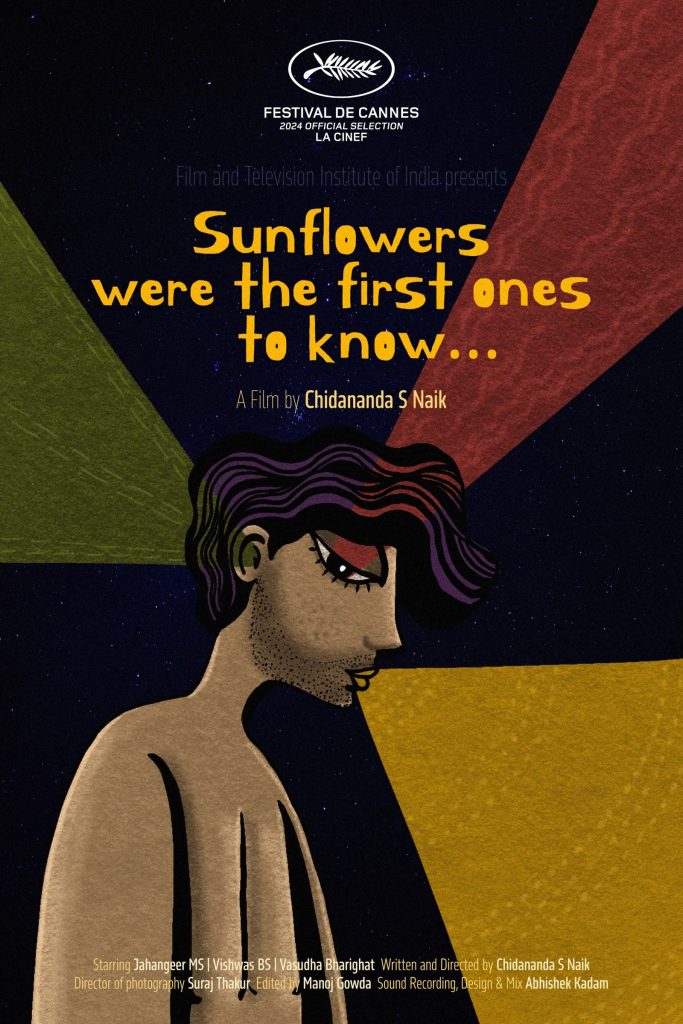(September 7, 2023) Chetan Singh Solanki is a man on a mission. For the past eleven years, Chetan, who has earned himself the moniker, Solar Man of India, has been on an extended ‘Solar Yatra’, hoping to increase awareness around energy conservation, and promoting the use of solar energy. Climate change is a reality that no one can really turn their back on. And for someone who has committed 11 years for the cause of energy to the extent that he has promised not to go home is a cause that needs to be applauded. Chetan Solanki is known for his global work in Energy Access, Energy Sustainability, and Climate Change.
The IIT-ian gave up on the cushy job prospects that come with being part of the academic elite. Instead, he headed to Belgium for a PhD and when he returned, coined the term ‘Energy Swaraj’, which aims to bring localised energy solutions to off-grid communities around the world. For over three years now, he has travelled the country on the Energy Swaraj bus to spread awareness, develops solar PV technologies, conducts training, and executes large-scale projects across the globe. Solanki also collaborates with policy makers and recently became the Brand Ambassador of Solar Energy for the Government of Madhya Pradesh.
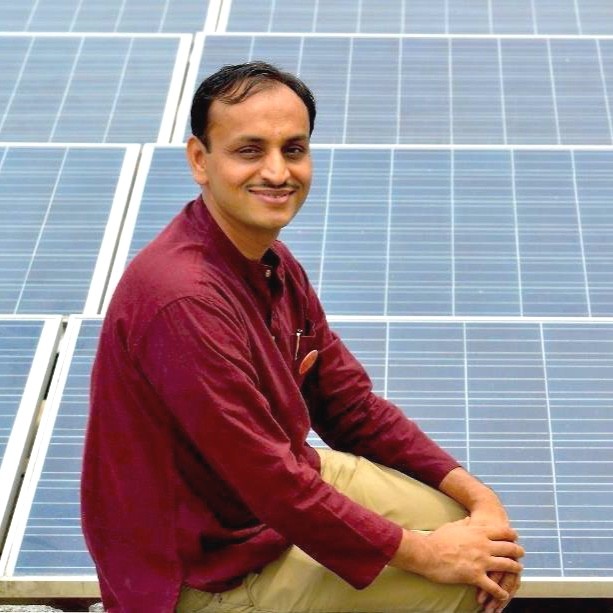
Chetan Solanki, the Solar Man of India
Looking Back
Solanki was born in a small village in Madhya Pradesh and his primary school had just one room for five classes. His parents managed to send him to Indore where he completed his engineering. “I was encouraged to pursue higher studies by my teachers, I could clear the entrance examination and went on to do masters in microelectronics from prestigious IIT Bombay. Since I came from a rural background, I always wanted to do something for village people. After my master’s degree, I wanted to work in the social sector. I tried to pursue a Ph.D. in social science and tried to get a job in the social sector. But it did not work, as I had masters from IIT Bombay, I was turned down saying I was overqualified. I started my job of chip design in a multinational company,” Solanki tells Global Indian. But he was not satisfied as he wanted to work on some technology that would be useful for society. Around 1998-99 he thought about solar energy solutions being beneficial for the society, and particularly, for rural areas and it was then that he decided to leave the job and headed to Europe to do a Ph.D. in solar energy.
Sun Shine
At IIT Bombay, Solanki has two major accomplishments to his name. He was instrumental in setting up the National Centre for Photovoltaic Research and Education (NCPRE), one of the best research centres in the PV domain that comprises nine laboratories. Faculty members and students from six to seven departments collaborate to conduct research. “Secondly, I led another important project, which was dear to me, it was Solar Urja through Localization for Sustainability (SoULS) project. Through this project we localised the solar energy solutions, empowering local communities to assemble, repair and maintain solar projects. We have trained nearly 10,000 rural women for the job. And through the SoULS project, we reached 7.5 million families providing them clean light. This project earned me a lot of recognition and awards with total cash prizes of more than Rs. 1 Crore,” says Solanki. He has also written four books on solar energy and his books, research papers, and US patents reflect a journey of innovation and impact. Solar Photovoltaics demystifies solar energy’s potential while his research papers advance solar tech, addressing climate challenges.
Energy Swaraj Yatra
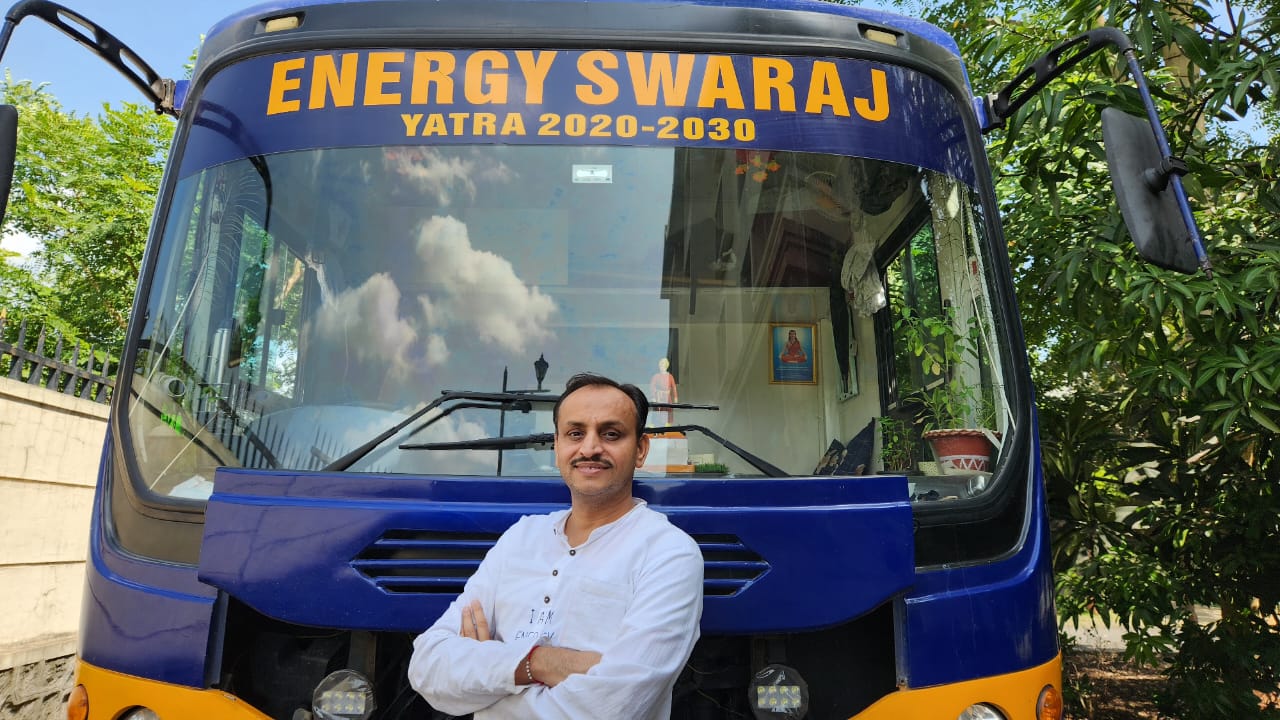
The Solar Man of India has been on the Energy Swaraj Yatra for over 1000 days
On his 11-year journey, onboard a bus named Energy Swaraj Yatra, the Solar Man of India plans to change the world in the manner it generates and consumes energy. The Energy Swaraj Foundation spearheads a transformative public movement towards Energy Swaraj or Energy Independence, towards 100% solar powered living. It is the only organisation that empowers individuals, communities, and institutions to impart awareness about climate change and encourage masses to adopt renewable energy solutions. The ever-growing generation of and consumption of energy has contributed to the problem of climate change, which is now becoming catastrophic and even raising the questions on continued human existence beyond this century.
“Solar energy solutions if adopted in a sensible manner can not only solve the problem of climate change but also provide jobs, strengthen local economics, and provide clean energy supply. I have embarked on an 11-year journey to ignite the change towards 100% solar powered life. This nationwide movement aims to empower communities with sustainable energy solutions. Through workshops, seminars, and activations, we will raise awareness and drive action for decentralised, solar-powered living. It is a call to embrace energy self-reliance, bridging gaps and fostering a greener future,” says Solanki.
The Road Ahead
The Solar Man of India believes that persistence fuels progress. His Energy swaraj Yatra has now completed 1000 days and has reached 22 states, covered 43000 km, and met more than two lakh people collaborating with more than 2100 organisations. “Slowly it has become clear to me that the way the world is using technology and growing economically, the humans are creating more problems for themselves, rather than making their lives easier. With increase in advancement, there is greater stress, depression levels are rising, degradation of natural resources is more than before and above all climate change is accelerating. But unfortunately, most people are sleeping on the current dire and critical situation we are living on the planet. I have learned that climate correction is beyond any government or policies now,” Solanki opines.
Blindly accepting solar energy solutions is not the solution either, Solanki says, especially without knowledge of the boundary conditions o flivingo n the planet. “I have learned that modern humans have become experts in solving one problem and creating another problem. We have not aligned ourselves with nature, and in that case no technological solution be ever sustainable,” says Solanki. Going forward, the number of Energy Swaraj Yatra buses will be increased and initiatives like Energy Literacy Training, Ek Kamra Solar Ka that can be adopted globally will be pushed ahead. “We are going to collaborate with a wider network to bring these solutions beyond India. Through our online platform the Energy Literacy Training is already taken by people from more than 50 countries,” concludes Solanki.
- Follow the Solar Man of India on LinkedIn and the Energy Swaraj Foundation on Instagram, Facebook, X their website

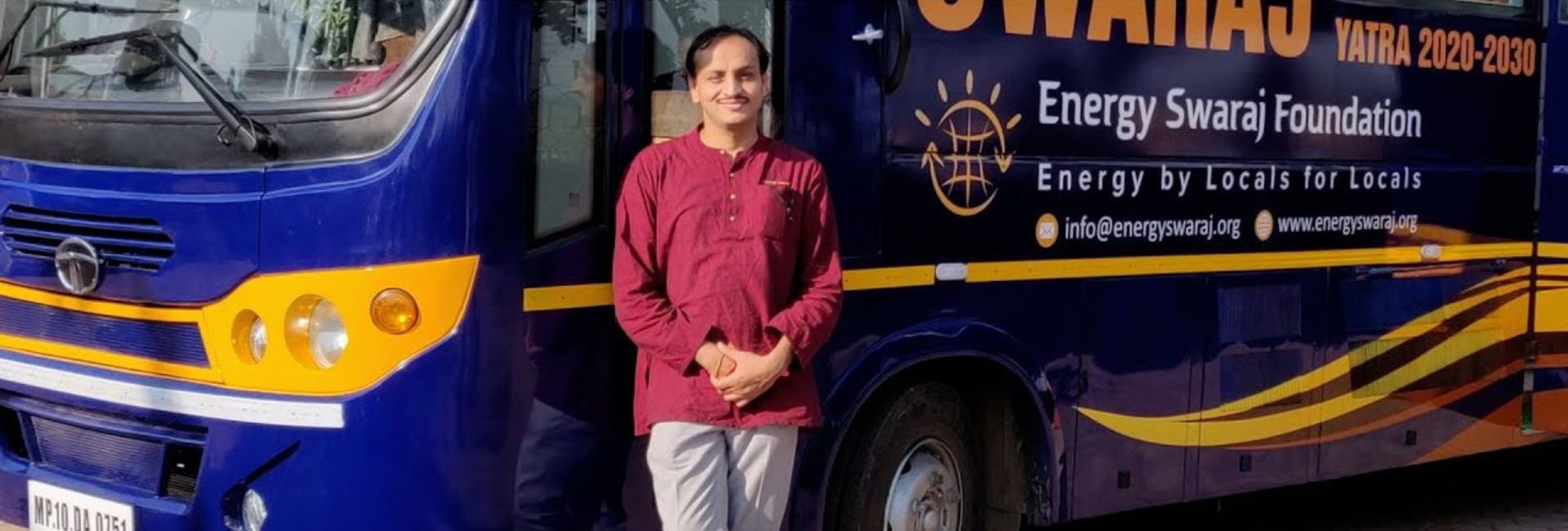

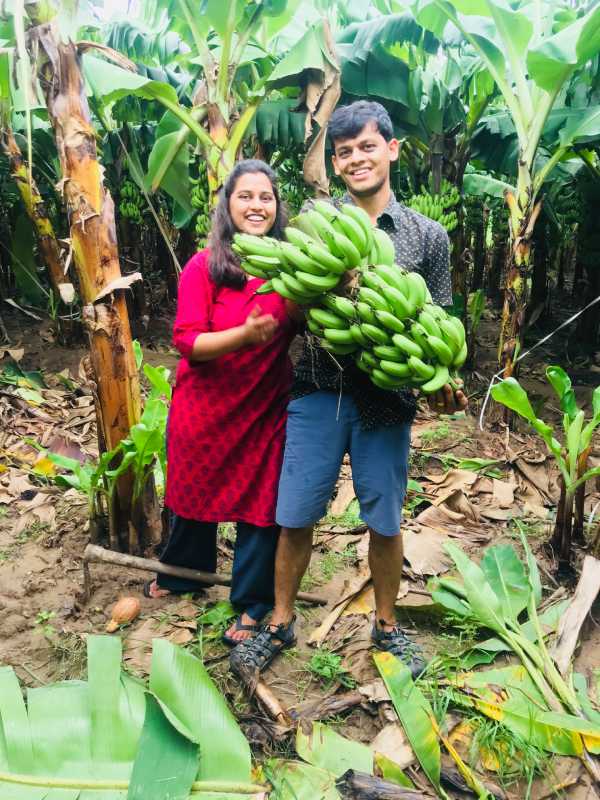 Brinda Shah and Vivek Shah at their forest form, Brindavan[/caption]
Brinda Shah and Vivek Shah at their forest form, Brindavan[/caption]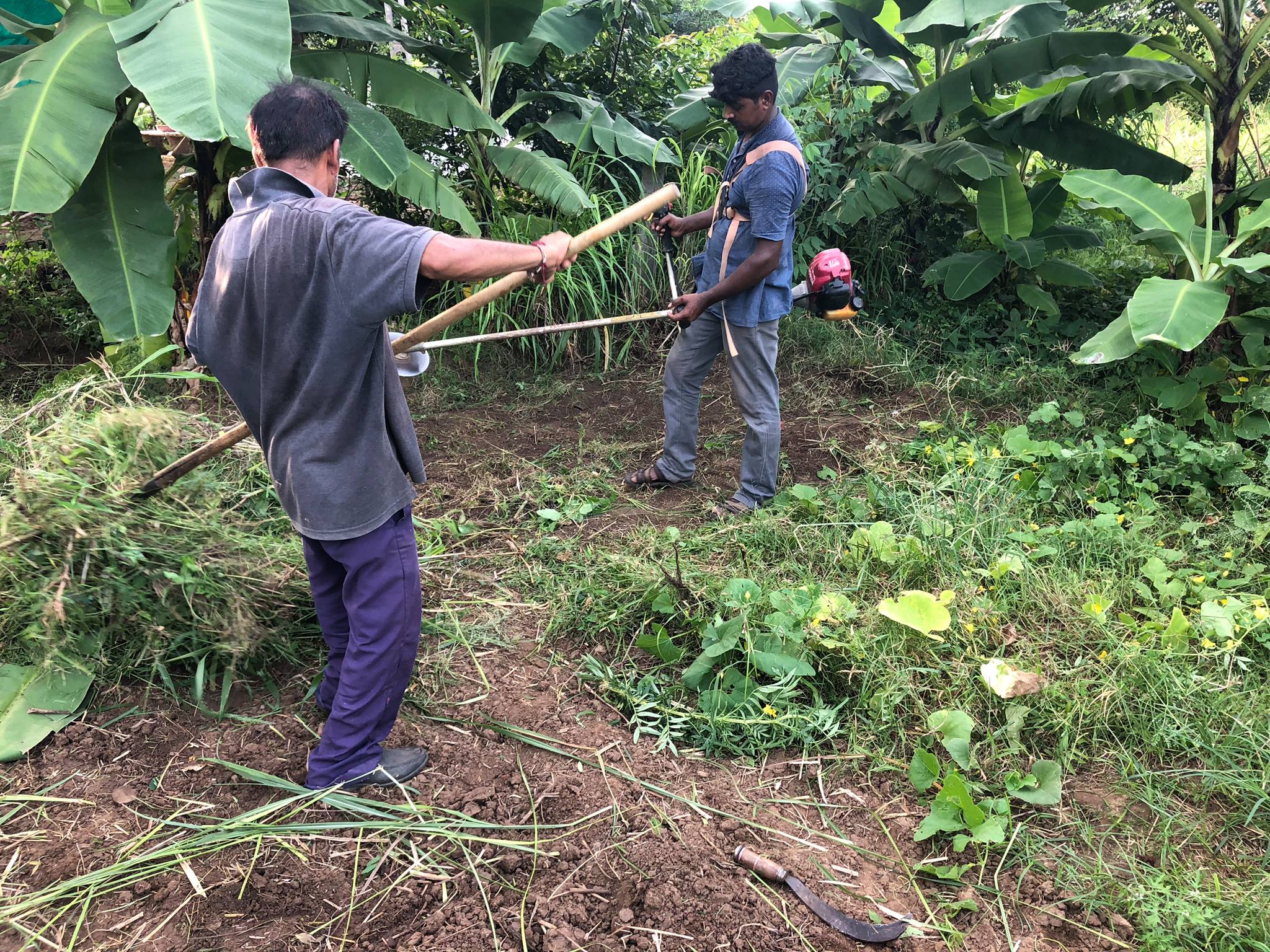
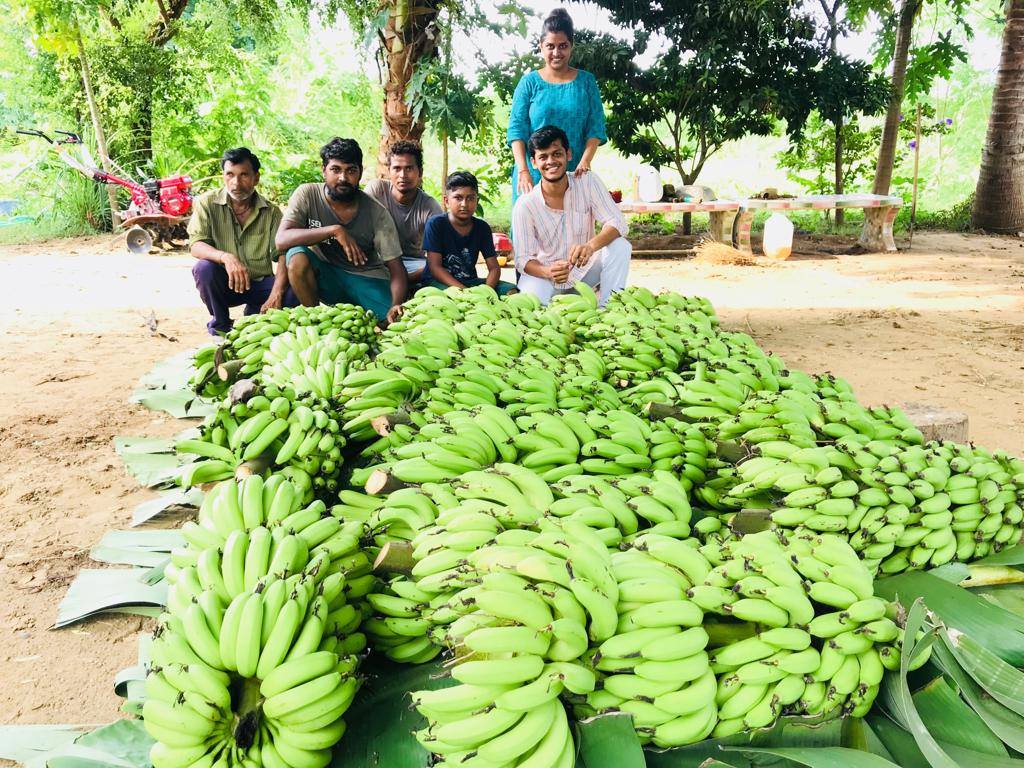

 Sharmin Ali[/caption]
Sharmin Ali[/caption]